Publication from Community Resource Hub: Cops Don’t Stop Violence

New co-authored resource critiquing data and narratives used to justify increased police spending, problems with crime stats and studies, and evidence-based strategies to stop violence.
How to Take Back the Budget
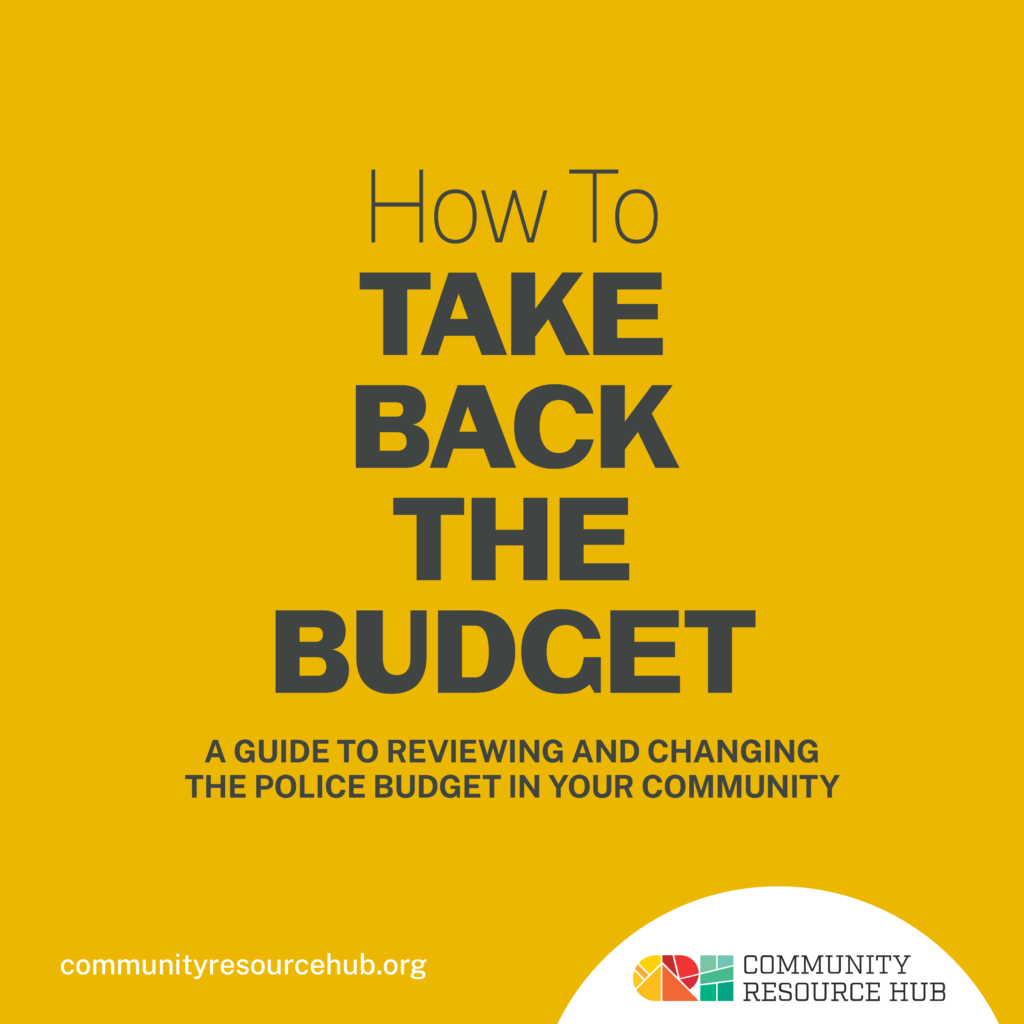
New guide to help communities review and change the police budget in their city or county. Provides practical steps to quickly translate budget jargon into real world information.
Pricing Policing in Your City
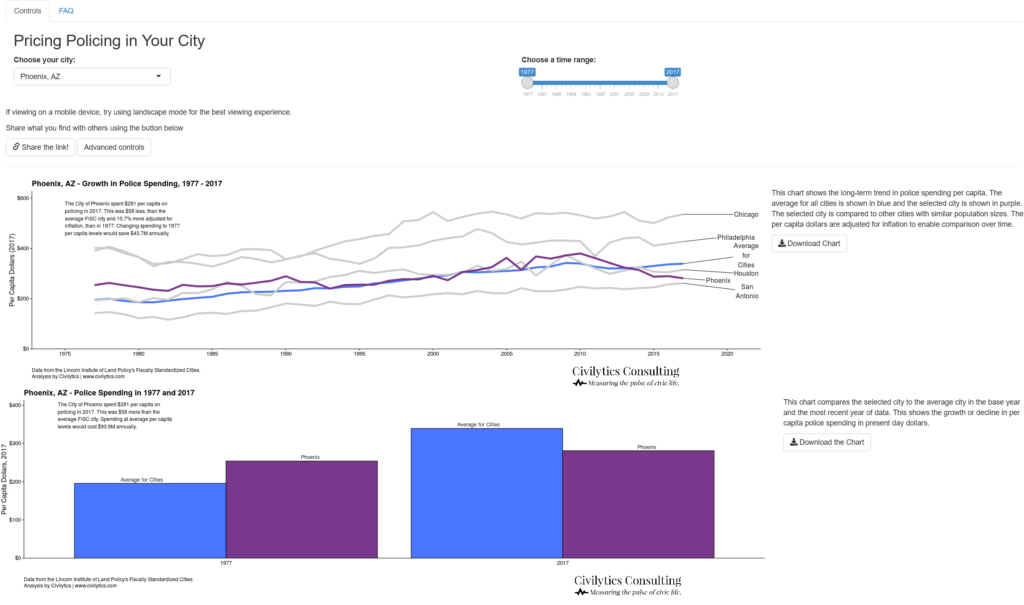
New tool to explore city's spending in an apples-to-apples way across time and across cities. Fiscally standardized historical spending data from 150 large U.S. cities allows users to explore per capita spending trends for policing, education, health, and other public services.
Budget Advocacy Tools
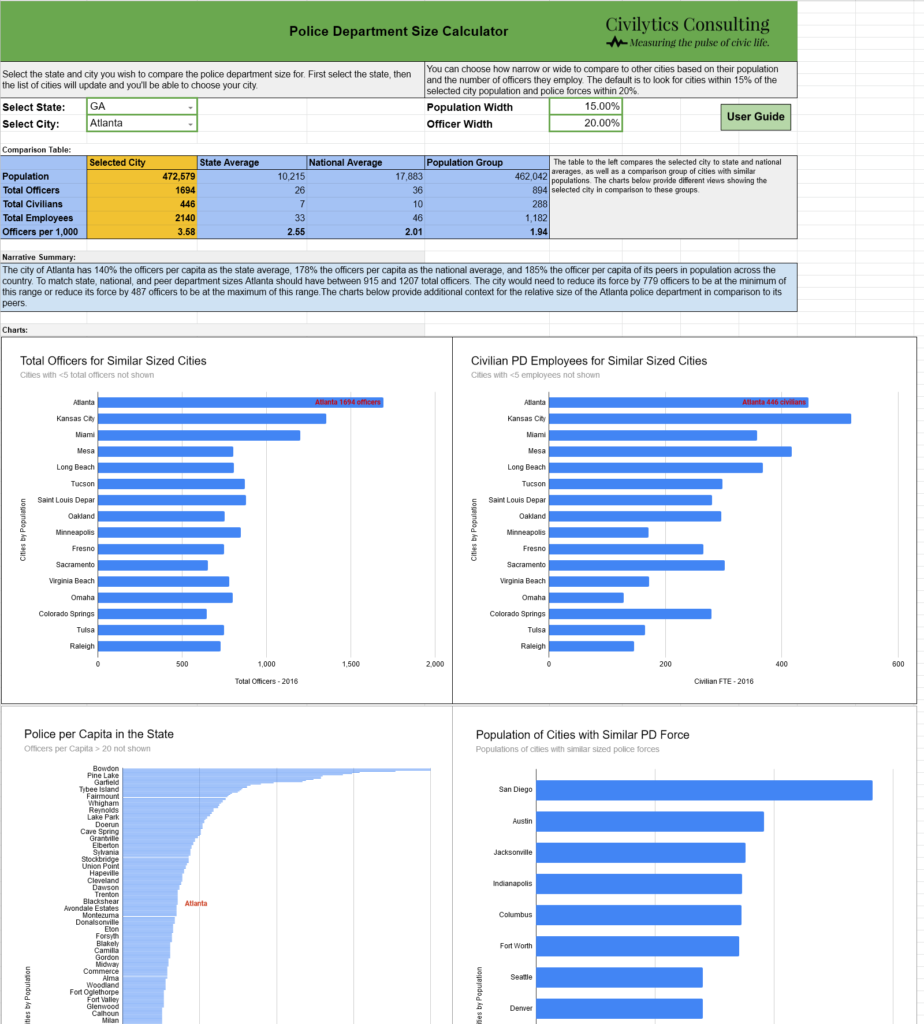
Three tools you can use to advocate for changes to your city and county budgets. Includes a calculator to determine how large your local police department is and a worksheet to estimate the cost of other public service programs.
Campus Policing Toolkit

A companion to Civilytics’ report on campus policing, this toolkit provides college-specific data about policing that local groups can use to begin a conversation about the safety and security of their colleges and surrounding environments. Includes a fact sheet, user guide, and datafile.
Policing the American University
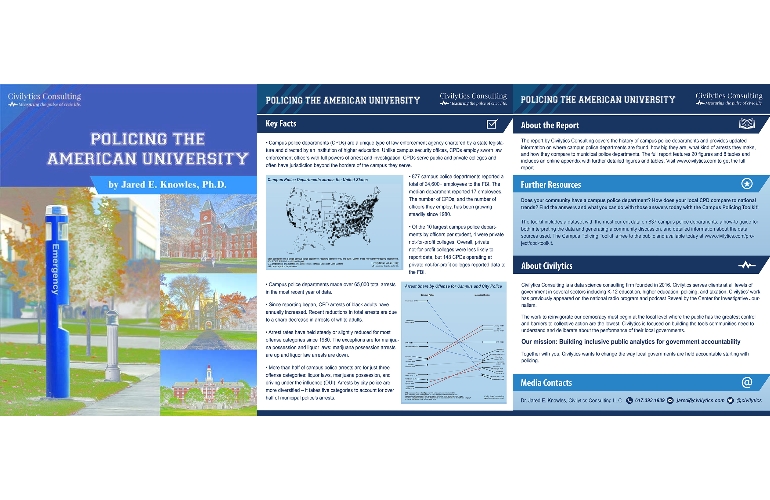
New report combining data from the FBI's Uniform Crime Report and the U.S. Department of Education to examine how common campus police departments are, how many people they employ, and what kind of arrests they make.
Police Accountability Factsheets
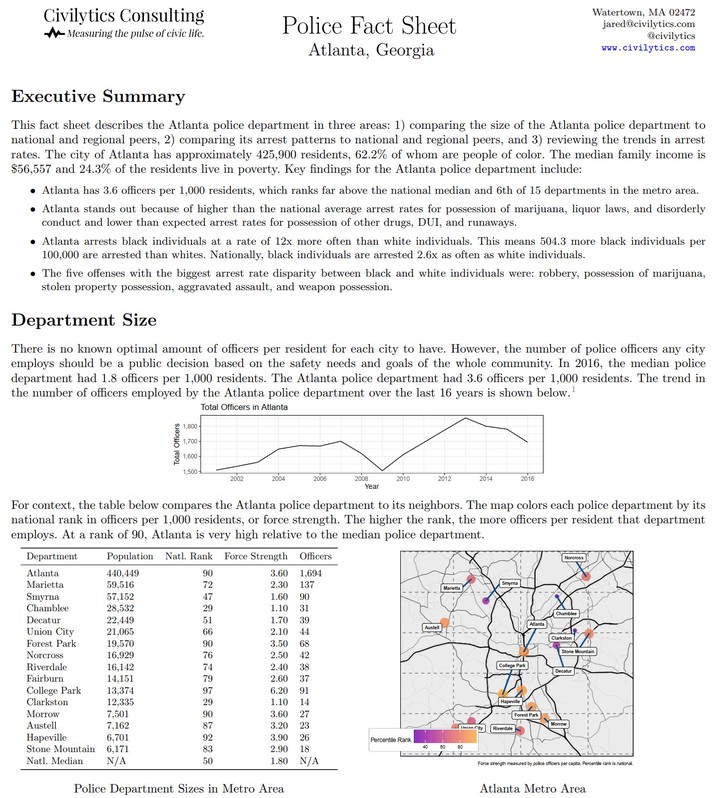
Customized fact sheets with policing data for more than 200 cities and 70 counties nationwide. Based on the FBI's Uniform Crime Report, each fact sheet describes police department's size, arrest behaviors, and any racial disproportionality in arrests.
Police Arrest Prototype
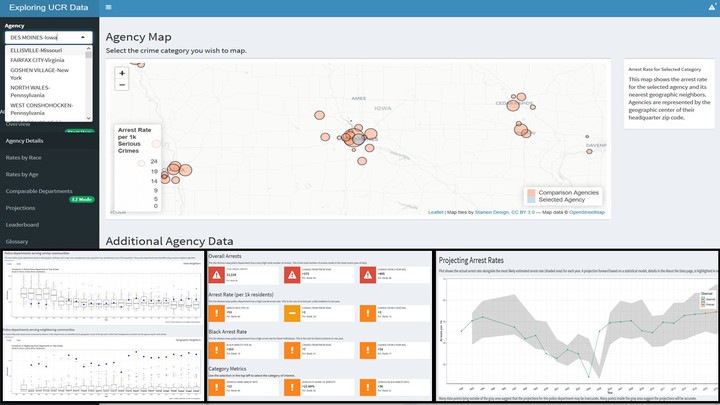
Prototype to explore data for 4,000+ police departments nationally, including trends in police action over time, comparisons between a selected police department and national, regional, and demographic reference groups, and projections of future police activity.
Related Projects
Kaggle Data Science for Good – Center for Policing Equity
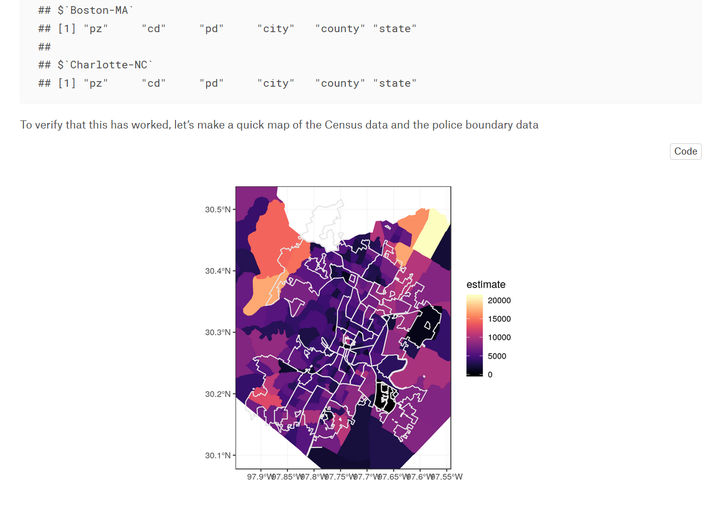
Civilytics won second prize (and learned a lot) in this competition focused on automating the combination of police data, census-level data, and other shapefiles for the Center for Policing Equity.

